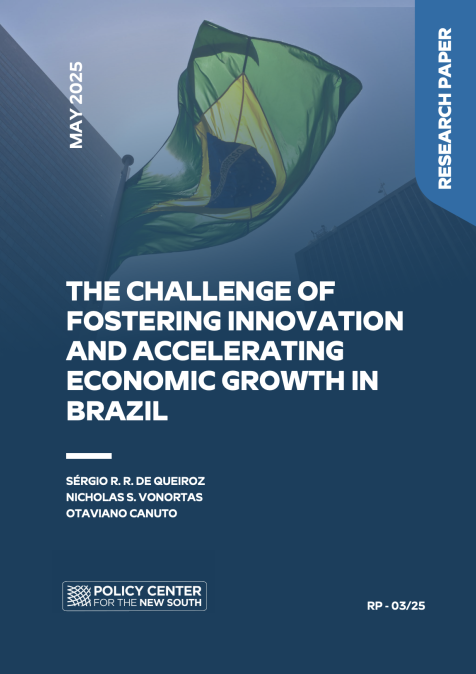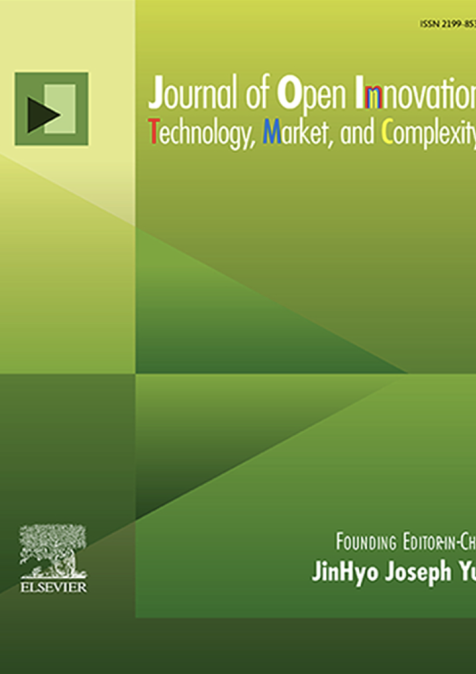Quelle stratégie industrielle pour le Maroc de demain ? Une discussion organisée en partenariat avec EGE Alumni. Intervenants : • M. Mohamed Bachiri, Directeur Général de Somaca, Vice-Président de la CGEM et Président de la Commission Innovation et Développement Industriel ; • M. Uri Dadush, Senior Fellow au Policy Center for the New South • M. Noureddine El Aoufi, Professeur de l’enseignement supérieur à la Faculté des Sciences Juridiques, Economiques et Sociale à l’Université Mohammed V de Rabat ; • Mme Sanae Lahlou, Directrice de la Business Unit Afrique au cabinet Mazars Maroc.
Speakers

Uri Dadush
Non-Resident Senior Fellow
Uri Dadush is non-resident Senior Fellow at the Policy Center for the New South, where he served as Senior Fellow from its founding in 2014 until 2022. He is Research Professor at the School of Public Policy, University of Maryland and a non-resident scholar at Bruegel. He is based in Washington, DC, and is Principal of Economic Policy International, LLC, providing consulting services to the World Bank and to other international organizations as well as corporations. Previously, he served as Director of the International Economics Program at the Carnegie Endowment for International Peace and, at the World Bank, was Director of the International Trade, Economic Policy, and Development Prospects Departments. In the private sector before that he was President of the Economist Int ...

Mohamed Bachiri
Directeur Général de Somaca, Vice-Président de la CGEM et Président de la Commission Innovation et Développement Industriel
Mohamed Bachiri est le Directeur Général de Somaca, Vice-Président de la CGEM et Président de la Commission Innovation et Développement Industriel.
Lauréat de l’Université de Lille et titulaire de l’European Executive MBA de l’ESCP, M. Mohamed BACHIRI a rejoint le Groupe Renault Maroc en 2006. Il est ainsi le premier Marocain à travailler pour le projet de l’usine Renault-Nissan de Tanger en sa qualité de DRH du Groupe Renault Maroc, poste qu’il occupera jusqu’en 2013.
De 2013 à 2015, M. BACHIRI rejoint Renault Espagne où il occupera des postes de responsabilités en Manufacturing. À son retour au Maroc en 2015, il prend les rênes de la SOMACA où il est, à ce jour, le seul marocain Directeur Général d’une usine du Groupe Renault.
Il a été en 2018, Président de la Commission ...

Noureddine El Aoufi
rofesseur, Faculté des Sciences Juridiques, Économiques et Sociales de l'Université Mohammed V de Rabat
Nourredine El Aoufi est Professeur de l’enseignement supérieur à la Faculté des Sciences Juridiques, Économiques et Sociales, Université Mohammed V de Rabat.
Il est titulaire d’un Doctorat d’État en sciences économiques de l’Université Mohammed V Agdal en 1990 sur « La régulation du rapport salarial au Maroc » (sous la direction de Abdelaziz BELAL). Il a fondé le Laboratoire d'économie du développement (LED, www.ledmaroc.ma).
Il est également fondateur de la revue « Critique Économique » et a été membre de la Commission scientifique du Rapport du Cinquantenaire « 50 ans de développement humain et perspectives 2025 » où il a coordonné et co-rédigé le rapport thématique
« Croissance économique et développement humain ».
En 2006, il a été élu président de l’Association maroc ...

Sanae Lahlou
Directrice de la Business Unit Afrique, Mazars
Elle dispose d’une quinzaine d’années d’expérience dont dix ans à l’AMDIE (Ex Maroc Export), où elle a assuré le poste de directrice des marchés internationaux où elle a développé une réelle expertise en développement international et sectoriel, business et market intelligence à travers l’exploration des marchés et l’accompagnement d’entreprises dans plus de 60 pays dont une trentaine en Afrique.
Avant de rejoindre Maroc Export, elle a travaillé à la Chambre de Commerce et d’Industrie de Paris en tant que conseillère Maghreb Proche Orient et Afrique Francophone.
Elle est diplômée de Sciences Po Paris et de l’Université Al Akhawayn et également titulaire d’un MBA en Commerce International à Paris et d’un Master à l’ISCAE sur « le Coaching des entreprises marocaines au service ...










